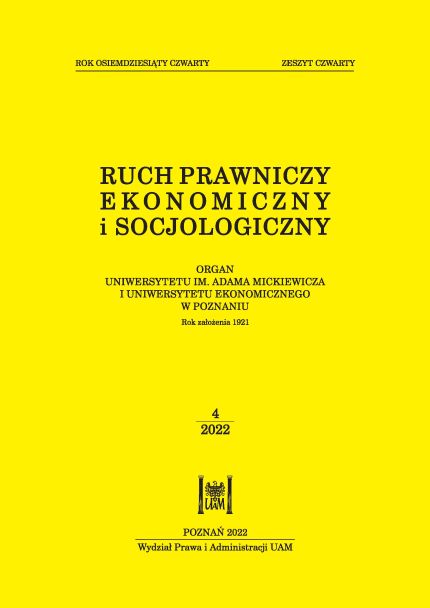Ustawa Prawo wodne z 2017 roku w świetle zasad techniki prawodawczej
The Water Law Act of 2017 in the light of the rules of legislative technique
Author(s): Jerzy RotkoSubject(s): Law, Constitution, Jurisprudence, Philosophy of Law, Maritime Law, Administrative Law
Published by: Uniwersytet Adama Mickiewicza
Keywords: water law; principles of legislative technique; legislative correctness; water management; water pollution; Polish Waters; Water Framework Directive; normative noise
Summary/Abstract: The article assesses the technical and legal correctness of the legislation of the Act of 20 July 2017 – Water Law, using the logical-linguistic method. The principles of legislative technique included in the form of an annexe to the Ordinance of the Prime Minister of 20 June 2002 on the ‘Principles of Legislative Technique’ are adopted as a point of reference. The analysis of the ways of expressing standards plays a key role both at the stage of preparing and adopting a new law, as well as during the period of its validity, as it allows various shortcomings of the adopted regulations to be revealed. The fact that the Water Law of 2017 has been in force for five years does not, therefore, make it unreasonable to undertake a comprehensive assessment from the point of view of compliance with the rules of legislative technique. In a broader perspective, such an analysis also provides research material for the formulation of theoretical and legal assumptions of the law-making process and their possible verification. The conducted research shows that in the Water Law Act of 2017 there are a few violations of the standards constituting the rules of legislative technique. Most of them do not cause any serious problems in applying the provisions, but there are also some – often overlooked in a cursory reading of the law – which deserve criticism. At issue here are violations of the consistency of the systematics, inconsistencies in the group of formulated prohibitions, which are additionally excessively rigorous in relation to the requirements of European law, dispersing issues between the main act and amending acts, and generally the phenomenon of the overproduction of legal entities, which introduces unnecessary normative noise.
Journal: Ruch Prawniczy, Ekonomiczny i Socjologiczny
- Issue Year: 84/2022
- Issue No: 4
- Page Range: 73-86
- Page Count: 14
- Language: Polish

